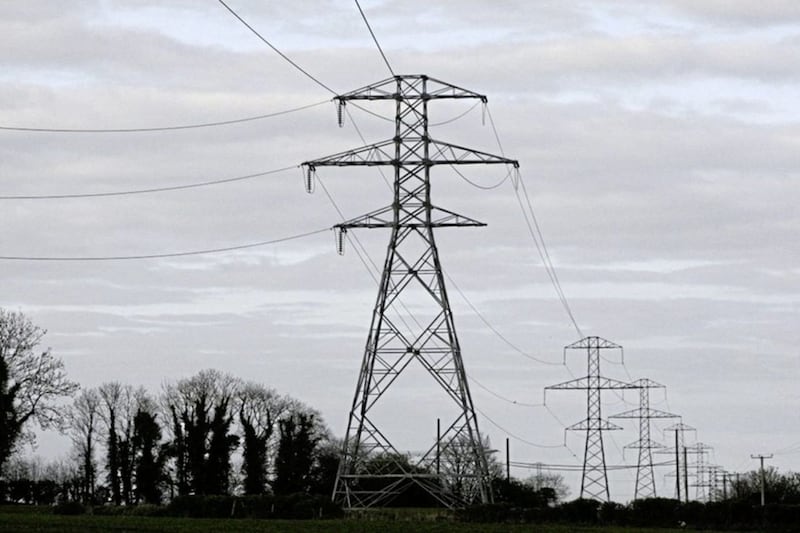The CBI in Northern Ireland and our sister organisation in Ireland (Ibec) have fostered constructive all-island economic discussions since the 1970s.
A joint business Council (JBC), led by CBI NI and Ibec, was set up to lift economic growth across the island through better collaboration and joined up strategic thinking in areas that promote business activity for the two economies.
This work ranges from cross-border transport links to supporting the development of an interconnected, scaled up single electricity market that has brought cheaper, more secure energy supplies to homes and businesses.
In the run up to the 1998 Good Friday Agreement (GFA), the JBC lobbied politicians in all parties about the merits of a lasting peace. The sustained benefits of the agreement for investment, economic growth and living standards were obvious.
The GFA removed borders and allowed foreign direct investment, tourism and trade to flow smoothly across the island.
Firms on both sides of the border sought out the advantages of new all-island business models that optimised integrated supply chains north and south, attracted labour from a larger population pool and provided a bigger market to sell goods and services.
Following the peace agreement, all-island co-operation was expanded in several areas. For example, strand two of the GFA sets out other areas for collaboration that include agriculture, environment, health, tourism and transport.
These areas fall under the North-South Ministerial Council, which agrees policies and approaches, although the implementation lies with each jurisdiction.
In addition, ‘implementation bodies’ such as InterTradeIreland, Waterways Ireland and the Food Safety Promotion Board were created and now co-operate on a myriad of practical issues.

In 2017, a mapping exercise during the first phase of the Brexit negotiations identified 156 areas of formal and information co-operation between north and south.
While both economies have benefited substantially from the peace process and its ability to attract investment, it has not been to the same degree.
The economic differential between the two jurisdictions is evident when comparing GVA per capita data.
NI’s GVA per head in 2021 was £24,007. However, the Central Statistics Office in Ireland reports that total GVA in Ireland (2021) was €409,389m and with a population of 4.98 million people, that equates to a GVA per capita in Ireland of €82k (or £70,481).
Without a doubt, protecting the post-1998 progress has been a challenge following the UK’s EU exit.
But ultimately trade in goods has been protected with the special arrangements delivered through the NI Protocol and subsequent Windsor Agreement.
Recent research by the Economic and Social Research Institute (ESRI) found that NI businesses exported €10.5bn worth of goods in 2021 – with 53% of those exports, valued at €5.6bn sold to Ireland.
It should be noted that NI’s trade with Britain is not viewed as ‘international trade’ or ‘exports,’ but sales to GB account for the largest proportion of our ‘external sales.’
Ireland has significantly higher export levels than NI, with €160.3bn worth of goods exported in 2021 - essentially Ireland exports more in one month than Northern Ireland does in an entire year.
A newly created trade body, Intertrade UK, aims to encourage trade between NI and the rest of the UK.
Growing trade with GB combined with NI’s role in the all-island economy and dual access to the EU market could all help to nudge Northern Ireland into a top spot for investment.
The economic potential for this region is enormous if every opportunity, whether collaborating North-South or East-West is maximised.
With the restored NI Executive and Assembly recently passing the 100-day milestone and a functioning North-South Ministerial Council, firms are keen to accelerate and support cross-border cooperation.
For that reason, the CBI NI and Ibec will host our Annual Joint Business Council Annual Conference, with a focus on supporting all-island business growth, in Dundalk on June 13th.
The conference will see discussions around ease of trade, infrastructure and connectivity, private investment, attracting talent, climate change and building all-island economic resilience.
Delegates will hear about the ESRI’s newly developed macro-economic model of Northern Ireland at the event.
This work will feed into a larger model of the all-island economy, aid our understanding of how it functions and eventually will be used to provide all-island economic forecasts.
With business and policy collaboration across the island and a willingness to look both south and east for better economic opportunities, there’s little doubt that Northern Ireland has a much better chance of delivering sustainable economic growth and raising living standards for all.
- Angela McGowan is Director of CBI Northern Ireland







